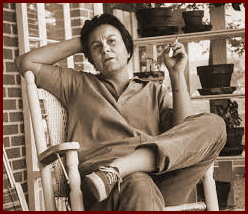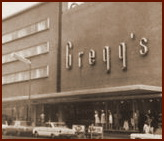I can recall when New Year’s Eve was a festive occasion. That was back in another life. Back when some dangerous years of my youth, in which I thought it was unlikely I’d ever see old age, were over. Suddenly, I was middle-aged—young, but not that
young. It was, however, a rather joyous time in which I saw the future stretching far in front of me, over some endless horizon. A time of lofty dreams and ambitious goals. A time in which, to paraphrase an Eagles lyric, I couldn’t “give the reason why I should ever want to die.”Back then, it seemed
like I might just live forever. Like I could do whatever I wanted. Entertain
any abuse, accomplish any feat, because nothing could hurt me. I was
indestructible. My powers of recovery enormous. My resilience exceptional. Of
course, even back then, another pesky lyric was echoing somewhere at the back
of my brain. A Cat Stevens stanza that went, “And though you want to last
forever /You know you never will /You know you never will / And the goodbye
makes the journey harder still.”
Thing is, it seemed
like that, the end of “forever”, was nowhere in sight. That it might come
“someday”, but in the meantime, it simply didn’t exist. Life wasn’t perfect. It
wasn’t everything I wanted it to be, but it was good. And I could convince
myself that “someday”, I would achieve everything I wanted to achieve. Be a
smashing success at what I had fancied was my destiny.
Perhaps that’s the
biggest difference between being old and, well, not old. The fact that there comes a time when you can no longer
ignore the passage of time. A time when, try as you might, you can no longer
convince yourself that you have a future. No expectation beyond the here and
now.
I get a double whammy every year, now. My birthday and year’s end in a single month. It can’t help but keep you focused on the passage of time and your own mortality. That said, while I indeed have a few old-age complaints, I wake up most days feeling like I still have a lot of thread left on the spool. To keep that frame of mind is fairly easy when, like me, you have nothing really major wrong with you, even if you’re exhibiting a “battle scar” or two. But most days, if I practice abstraction, I can still convince myself I am only as old as I allow myself to feel.
That’s an absolute
fallacy, of course, since the statistics don’t bear it out. Nor would my
cardiologist. But there are always exceptions, people—even if only a few—who
live happy, well and strong into their late eighties and early nineties. What’s
to keep me from being one of those? Why couldn’t I, perhaps, still have a ten,
fifteen or twenty-year writing career ahead of me? A career as long as the one
I had as a journalist, or the one I’ve had as a free-lance translator, editor
and ghostwriter. Those are the kind of thoughts that keep a spring in my step
and the steel in my will to hang onto mind and body and not let them flag. Come
on, my boys! Keep up, if you know what’s good for you! Movement is life. Get up
and get moving, I tell myself, because it’s proof of life.
In Buenos Aires, I have
an old friend (but don’t let her hear
me say that!), who is only slightly younger than I am. But she’s always talking
about projects for the future, about getting herself a van or motor home and
living in it, traveling from place to place forever. Or about becoming a chef
and running a great restaurant’s kitchen, or about moving back to the Canary
Islands, where she lived for ten years many moons ago, and running a hotel
kitchen there. She gets upset if I talk about our age and remind her that we’re
no spring chickens. She might even say something like, “I’m not old. Not yet!”
“Well,” I say, “we’re
hardly middle-aged anymore…I mean, unless you plan to live to be a hundred and
forty.”
“Why shouldn’t I?” she asks defiantly. “Lots
of people live to be a hundred. Why not a hundred and twenty, or a hundred and
forty. It could happen, right?”
I just nod, say, “Maybe
you’re right. I’m just being negative. Sorry.” I bite my tongue not to ask her
sarcastically if she remembered to get the five hundred thousand-mile warranty
on the two hip replacements she had a couple of years back.
No matter what tricks I might use to convince myself of my powers of longevity, in the end, it is what it is. And the fact that the mortality statistics are no longer on one’s side can be a liberating thing. I may no longer have a horizonless future stretching before me, but I do have right now. And if there’s one thing that’s great about being “elderly” (geezus, but I hate that word!), it’s that the time you’ve got belongs to you. Today stretches before me the way that near-endless future used to. But now I have no obligations but the ones I decide to accept. So, today is all mine to do with as I please. Or to do nothing, if that’s what I should decide—although that rarely happens.
That doesn’t mean that
there aren’t niggling reminders. Like, for instance, having gotten through a
recent eye surgery and recovered almost fully the sight in that eye, I right
away went to renew my driver’s license. It’s been expired for the last two
months. But I’ve been driving anyway (please don’t tell anybody!), because
while I could see well enough with my good eye to drive before the surgery, I
would never have passed the eye test for a new license, since you have to be at
least 20-20 in one eye and 10-20 in the other, and I wasn’t.
Anyway, there’s always
a whole rigmarole to renewing your license in Argentina. This has been the case
ever since the central government rescinded the right of provincial and
municipal administrations to issue their own licenses and brought highway law
and licensing under federal purview. That happened the time before last that I
renewed. That time they gave me a new federal license and all I had to do was
show up within a month after the expiration of my old municipal license. I also
had to pass a physical and psychological test before getting the new license. That
one was good for five years.
The next time I went to renew, however, there were new rules. First, I was over sixty-five (but not yet seventy), so the license was only renewed for three years. I also had to retake the driving test and, before doing that, take the physical and psych exams. That time they also required a certificate from traffic court saying I had no outstanding tickets or infractions. And, the car I was taking the exam in had to first pass a thorough vehicle inspection.
This time it’s more of
the same. Early last week I started the process at the DMV, then went to
traffic court and got my certificate saying I had no tickets or infractions
outstanding. Yesterday, I scrambled before the year-end holiday to get a psych
test, hearing test, eye test, blood pressure reading and medical interview.
The day before, I drove
out to the technical verification course and asked for an appointment. Have to
return for vehicle inspection next Thursday. Without that, even though I’ll pass
my driving test next Tuesday (at 7 a.m. which means leaving home by six), they
won’t give me my license.
I worry about this the
same way I worry about the physical tests they run on me. We’ll take the test
in my wife’s Renault Clio, but both of our vehicles are as much senior citizens
as we are. The Clio turned twenty-five this year (bought it brand new in ‘97)
and my Toyota Hilux truck is about to turn twenty-eight. We take good care of
both, but extra special care of the Clio since it’s Virginia’s car. But although
it’s in really good shape “for its age” and although it’s a really robust
little car to start with, a vehicle that old is no more likely in car years to
get a completely clean bill of health than I am in human years at seventy-three.
That said, it passed
with flying colors three years ago. Hopefully it will again. The muffler’s been
a little cranky and grumbling around when we’re out on the road lately, so,
just in case, I also took time yesterday to go to the muffler shop and have the
muffler and tailpipe changed. An ounce of prevention…
All of this I can take
in stride. It’s all part of the rich tapestry that makes up Argentina’s
legendary bureaucracy—what my late sister-in-law used to refer to as “the
Soviet”. But the cruelest cut of all was when they told me I’d have to do all
of this once a year from now on. Seeming to want
to be humiliated, being a proverbial glutton for punishment, I made the mistake
of asking why. The answer was immediate and anesthesia-free, and said with a
combination of disbelief at my naïveté for asking and of pity for my
predicament (because no one young ever thinks he or she will ever be old): “Because
you’re over seventy.”
Try as you might to
ignore this obvious fact, to get up feeling you’re as strong and capable and “together”
as ever, when a third party points it out, rubs your nose in it, as it were,
and goes as far as to tell you that, no matter how good you feel “for your age”,
you can be legally discriminated against simply because you’ve reached a
certain stage in life, that you can, in a word, be “protected” from yourself
and have others be “protected” from you, it hurts. It hurts no matter how
strong a stuff you’re made of.
But life, fortunately,
goes on. When this process is finally over with next week, I’ll be able to
forget about it until the end of next year. And once I shake it off, I’ll once
again be able to get up in the morning and pretend I’ve still got all the time
and freedom in the world.
Some weeks are better
than others. Some days are brighter. That’s a fact of life. And in the end,
there is still always something to celebrate as the old year ends and the new
one begins. If nothing else, that we’re still here to see it and to experience
whatever it might have to offer for as long as we manage to keep waking up
every day. In the end, that’s the miracle. That, after all these years, all the
miles, all the danger, all the close calls and hard times, the illnesses and
recoveries, the good, for me, still far outweighs the bad.
Today has been yet another one that I could call my own. Tomorrow will take care of itself. In the meantime, I’m still here, and loving it.
















